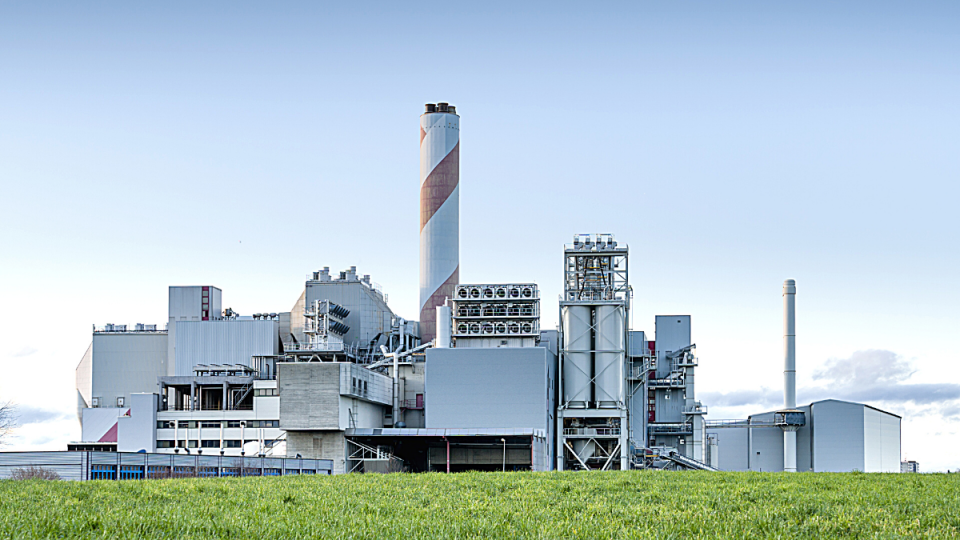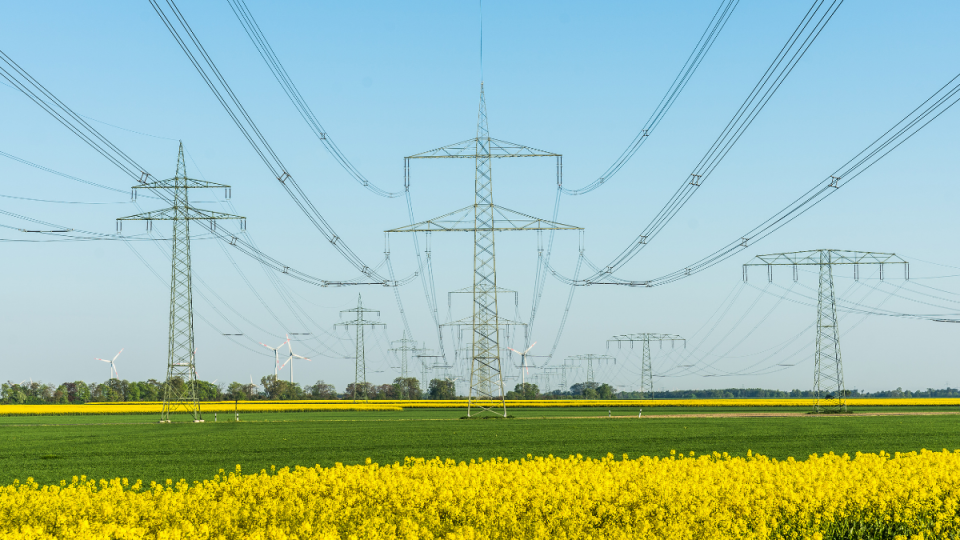The United States has an unprecedented opportunity to take meaningful action on industrial decarbonization. Last year, Congress came together against all odds to pass a Bipartisan Infrastructure Law that includes billions of dollars for state projects to limit carbon pollution from industrial facilities. The law’s passage, along with the recent Biden-Harris Administration announcement on actions to reduce industrial and manufacturing emissions, mark a significant building of federal momentum. State governments must capitalize on this moment by enacting state policies to support industrial decarbonization, priming them to make full use of federal programs and funding.
Including the decarbonization of this vital sector in state policies and planning will set a state apart as a leader in industrial decarbonization, preserve good industry jobs, and attract economic investment.
Key Takeaways:
- States have an opportunity and responsibility to support and attract industrial decarbonization projects.
- Industrial decarbonization has local environmental, community, and economic benefits that can be optimized through state programs.
- Federal programs can be utilized and complimented by state governments and agencies.
State Policies to Support Industrial Decarbonization
Industrial decarbonization doesn’t lend itself to one-size-fits-all solutions. The diversity of facilities, their processes, the sources of energy they use, and the products they provide means that we will need a robust portfolio of federal and state policies to support innovation, investment, and deployment of carbon mitigation solutions.
The I3 Policy Blueprint is one such portfolio. The blueprint outlines a mix of nascent and established technologies, including carbon management, low- and zero-carbon hydrogen, electrification, energy and feedstock efficiency, and the financial policy mechanisms necessary to support them.
Federal programs are increasingly supportive of these solutions, making it a critical time for states to attract and support industrial decarbonization projects at the local, state, and regional scale where the implementation of federal programs will take place.
Carbon Management
Carbon management is a general term for the carbon capture, utilization, and storage solutions necessary to cut the hardest-to-abate emissions from industry and manufacturing.
To support carbon management solutions, states should clarify rules and regulations around carbon dioxide (CO2) storage, regional planning around transportation and storage infrastructure, and clarify agency responsibilities and rules around CO2 ownership. Financial incentives, clean product standards, tax policies, and state financing programs can be tailored or expanded to support this key solution. Such measures would ensure that necessary financial incentives are present and accessible for carbon management projects.
Furthermore, carbon management market development can be supported with state procurement standards and offtake agreements to secure the purchase of captured carbon or credits.
Clean Hydrogen
Low- and zero-carbon hydrogen solutions are of growing interest. These solutions present a key opportunity for decarbonizing on-site fuel combustion for our harder-to-abate industries, especially those requiring high-temperature heat in the industrial or manufacturing process.
Explicitly including low- and zero-carbon hydrogen use in state sustainability plans and granting state regulatory commissions the authority to include related infrastructure in their resource plans will provide a measure of certainty for prospective hydrogen projects. Establishing a regulatory framework for permitting can support efficient project development. A predictable and timely permitting process for hydrogen production, transport, and storage will help attract projects to states, as will offering financial incentives for hydrogen production and end use.
Electrification and Efficiency
Electrifying industry wherever possible presents a great opportunity to cut direct emissions associated with low- and medium-heat industrial processes by switching away from on-site fossil fuel use and taking advantage of an increasingly clean electric grid. Increasing energy efficiency further enhances all the solutions mentioned above, as increasing efficiency reduces the amount of energy needed overall.
State governments are well-positioned to convene utilities, state regulatory commissions, and industrial customers to consider facilities’ electricity needs. For industry to effectively utilize increased levels of low-carbon electricity, additional infrastructure will be needed for conveying and delivering that electricity, providing economic viability, and making sure that it is reliable.
State governments can provide additional financial incentives, such as tax credits or grants to complement those provided at the federal level, for technologies that require support for broader commercialization and deployment. These incentives can be particularly effective to accelerate the replacement of large capital investments at moments of equipment turnover, electrifying key processes and increasing energy efficiency. Additionally, improving permitting procedures to accelerate approval timelines will accelerate that beneficial electrification.

Grid and Infrastructure Enhancements
Scaling up electrolytic hydrogen powered by renewable or nuclear energy will require a vast expansion of available zero-carbon electricity. States should work with the federal government and regional grid authorities to enact policies that facilitate expansion and hardening of transmission and distribution infrastructure.
In areas with abundant renewable resources, incentives that allow excess renewable capacity generation to be moved via transmission infrastructure to areas with less abundant renewable resources for hydrogen production via electrolysis would increase confidence in additional renewable resource development and the viability of low- and high-temperature electrolysis projects.
The establishment of hydrogen hubs should allow for co-location of hydrogen production and renewable energy resources. However, to scale up this solution to the degree necessary for the midcentury decarbonization of this challenging sector, reliable transmission of low-cost, zero-carbon electricity will be critical. Additionally, regional transmission expansion can support affordable electrification of industrial processes by connecting regions of the US with ample and excess renewable capacity to large industrial customers.
Procurement Policies
Procurement is less of a technical solution and more a policy to support market development for low-carbon industrial products. A key place to start is to support information and disclosure policies.
In order to procure low-carbon products, we need to be able to clearly compare the emissions intensity data across facilities and products. It can be extremely challenging for small and medium manufacturers to develop such reporting mechanisms, so technical assistance and state grants are critical to enacting procurement and disclosure policies.
Procurement bonus policies are another tool states can use to encourage companies to outperform each other on low-carbon innovation. A procurement bonus provides a cost discount to a company’s bid if it has a lower carbon intensity than its competitors.
Finally, public sector procurement standards could be established to create a required carbon intensity benchmark for public purchasing. To do this, states will need to set a threshold focused on specific product and material types that are somewhat more ambitious than the market average. States will also need to increase that threshold’s stringency over time to encourage continued innovation toward midcentury decarbonization.
Collaborative Innovation
The policy recommendations outlined here will get states on a path toward decarbonizing industry. Still, we need to do more if we are to achieve net-zero emissions by midcentury.
States can address local challenges and capitalize on unique opportunities for industrial decarbonization by developing a state task force dedicated to exploring the technologies and policies that will help decarbonize a state or region most effectively. This group should be diverse, pulling from a variety of stakeholders and benefiting the industries most relevant and communities most in need.
It is worth noting that these solutions only represent crosscutting mechanisms to support decarbonization. Switching feedstocks, increasing input efficiency, and using recycled materials in specific industries also provide significant opportunities to reduce negative climatic, environmental, and societal impacts from the industrial and manufacturing sectors.
States have led the way in accelerating renewables and reducing emissions from cars and trucks. Now it’s time for them to do the same to increase efficiency and reduce emissions from smokestacks everywhere.
State Resources
The Bipartisan Infrastructure Law, while a federal law, has many opportunities for states to fund industrial decarbonization initiatives. Note that the Bipartisan Infrastructure Law’s formal title is the Infrastructure Investment and Jobs Act (IIJA). The following resources can help states navigate opportunities, eligibility, and key dates:
- Carbon Management and Industrial Provisions IIJA Factsheet
- DOE’s “one stop shop” for IIJA Programs
- NASEO [National Association of State Energy Officials] Resources on CCUS and Hydrogen
- NASEO IIJA Implementation Hub
- NASEO Equity Committee and Program Information
- Infrastructure Act Resource Hub
- National Governor’s Association IIJA Resources Hub
- National Conference of State Legislatures Key Resources Page

